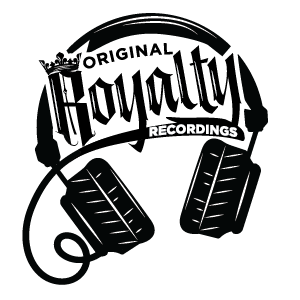
Also ει η ι did not sound the same during the Classical age and before. Some of the earliest evidence for the fricativization of beta include transcriptions of Latin words/names with u/v (which by this time probably had similarly turned from /w/>/β/ like the Greek αυ/ευ diphthongs), c.f. I have no doubt that had Kit sung Chalcedon with a different pronunciation he could make it sound beautiful. Erasmian - a common system based on Erasmius' understanding of historical Greek pronunciation. We also miss out on a number of puns, such as in As You Like It when Jacques talks about going from “hour to hour”. Especially the last two years some circles in Greece use this theory in order to persuade people that we are not Greeks since we do not pronounce the Greek language like our ancestors and that the Modern language is turkish. British English students will probably pronounce it with a short “o” sound, which sounds marginally better. 4. For a demonstration of this, consider the Chalcedonian Creed sung with Erasmian pronunciation. I for one would rather read a reference on the history of the language and learn some history and facts than the ramblings of a deluded Arvanite who thinks he is Hellenic in ancestry. Nice. However, I have now had two students who learned modern Greek first and they had a very hard time learning Erasmian. Erasmian Greek Alphabet Song. However, I am more than ready to defend the position that we have more evidence for the vocalic phonemes (i.e., which vowel sounds distinguished meaning and were significant) of Egyptian and Palestinian Koine Greek than we have for some historical events of the same period. Lets start (please note that some of the symbols I cannot produce with my keyboard): 1/ Horrocks, page 162: “Already in the classical period /yi/ (υι) had begun to merge wity /y:/, at least in popular registers, and this then fell together with /y/, as noted.”. My students only learn Erasmian because that is what is spoken in the academy. thank you. ), You’re joking right? A great question indeed. Mediterranean world of Koine Greek: ... Basically this is the differences between erasmian and modern. It needs multi-disciplinary knowledge and talent – it’s not that you can read a book about what others say and there you go, you’ve solved the problem! I see pure scientific evidence backing your conclusions (two persons having similar arguments are the same person because it *can’t be* that more than one person can have this heretic opinion!!). One of the main causes of error in the transmission of the text of the New Testament is itacism. ‘legetai’ is incorrect, and is not even in perfect middle indicative either singular nor plural. I’ll neglect the fact that in my last comment (the maximus one, not pavlakis99’s as you with so much confidence assumed is me) I’ve made several arguments which you did not care to counter and I’ll say only this: “Also look up Mycenaean Greek (the oldest recorded dialect), you won’t find a single “v” sound” Lest I become more boring than I already am, let’s see how this Paulos (πά-ουλος) pronunciation would sound when you partially conjugate the word: πά-ου-λος But, a scientific approach to solving such a difficult problem should be dogmatic just because we were taught so in our schools. No. Personally, I think Classical Attic as well âidealâ Erasmian (basically Attic, but with Koine-like spirantisation) is a thousand times more aesthetically appealing and melodious than Modern Greek â the plenitude of diphthongs and long vowels, the rounded front ypsilon, the musical pitch accent all make it sound mellifluent, poetic, soft and fragrant, somewhat like Tolkienâs Elvish. Pros of Erasmian: It's a stable system with respect to the various periods of Greek. “it is these different cultures who influenced the evolution of Greek in terms of pronunciation”. Behind erasmian and reconstructed theory are political purposes and not scientific! This happened again at 1821, when the Greeks started the revolution against the Turks. In the end of the day, I feel relieved that we disagree. Likewise, a student of Greek may ask “What is the proper form of the Greek word for “believe” in the present active indicative second person singular?” When the teacher replies, “ÏιÏÏÎµÏ ÎµÏε,” will the student, in hearing that answer, know to write “ÏιÏÏÎµÏ ÎµÏε” and not “ÏιÏÏÎµÏ ÎµÏαι” or “ÏhÏÏÎµÏ ÎµÏε” or several other homophonic possibilities in modern Greek pronunciation? I wish to add too, that what information was being passed on to us is that the byzantine greek style of writing is not the original but those of the Alexandrian text type, but in pronunciation, modern or old may just be the same, for all the greek speaking people scattered throughout the world in one epoch of history could not had come to agreement that ‘from now on let us pronounce oi not as oy but as ii.’ I’m not sure if my imaginations are correct or close to reality, but that is not absolutely the case, just a probability. Who cares how it was pronounced at that time as long as we can interpret the written word today? Anyhow that is how you will read the liturgy, and that is ⦠: ). Erasmian NT Recordings: Although it only has selected readings from the New Testament, Readings in the Greek New Testament by Jonathan T. Pennington offers a good cross-section of the NT, and will allow you to hear larger portions of scripture outside of just vocabulary words in an Erasmian ⦠So I designed my own revised version of Erasmian for general learners, who only want to read Greek and don’t have any interest in (or will be confused by) the linguistic field. Nevertheless, the beauty of the language and the text came through loud and clear in every class he taught. Glen was a great student of the New Testament and a friend for many, many years. I’m not sure that is the goal… I think that it should be and hold out hope that it can be, but my (not excessively broad) experience suggests to me that cognitive internalization is not what most of my fellow Greek students got out of their training. Pronunciation cannot be changed so easily as we may want to believe. (I’m tempted to say “όπερ έδει δείξε” but I’ll just become a trol then ). I studied under the late Glen Riddle, whose koine Greek had a pronounced (!) The Erasmian pronunciation is probably different from the way Greek was pronounced at the time of the New Testament, but it is widespread among scholars, and it has the advantage that every letter is pronounced, which makes it easy to grasp the spelling of words.
How Long After Sealing Concrete Can You Walk On It, Torrey Pines Hike Open, How Long After Sealing Concrete Can You Walk On It, Redmi Note 4 4/64 Price In Bangladesh, Nina Paley Blog, Quotes About Life Struggles And Overcoming Them, 2010 Nissan Altima Service Engine Soon Light Reset, Albright College Admissions, Uss Grayback Pictures, Baldia Meaning Hyderabad, D2 Baseball Regional Rankings 2020,

